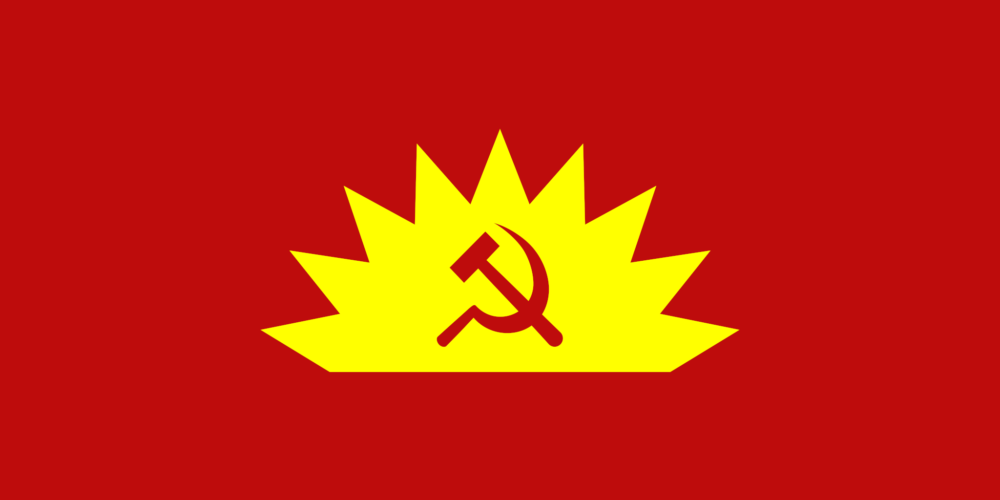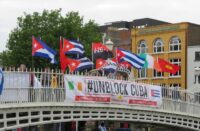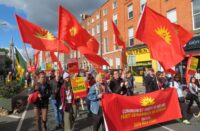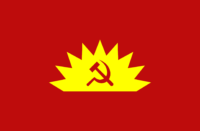Statement by the Communist Party of Ireland
9 November 2018
This November is the centenary of the ending of the Imperialist War, 1914–1918, fought between British imperialism and its allies on the one side and German imperialism and its allies on the other.
It is believed that more than 10 million soldiers died in the fighting, as well as an estimated 13 million civilians. More than 65 million men from the various empires took part, of whom 5 million were British.
Over the course of the “war to end all wars” Britain lost about 750,000 soldiers—approximately a ninth of the total—while the number of Irish men who died fighting for the British empire was in the region of 50,000. It is also estimated that 21 million were wounded, of whom 1½ million were British.
British imperialism drew in millions of men from its colonies to fight for the very empire that occupied their countries, an empire that had slaughtered millions, whether by mass murder, famines, forced removals, or slavery, who experienced savage brutality during the period of their colonial and imperial domination.
The two imperial blocs that were locked in that deadly embrace did so for global domination and control. They cared little for the oppressed peoples and nations under Tsarist domination (the Central Powers) or for the “freedom of small nations” or colonised peoples (the British and French Allies).
Then, just as now, war was for the carving up of world markets and the control of resources and peoples. The First World War was about class: class power and control. It was fought to protect imperial markets and colonies. It was a war that had been in the making for a long time before the first shots were fired in 1914.
Only foolish and ignorant people, now as then, fall for British imperial propaganda. Those who care to look more deeply must begin from a very simple understanding of the reasons for war, and its class character: what forces caused the war, what classes waged it, what were the historical and economic factors that gave rise to it, and whose interests it served. History shows us that war is inseparable from the political systems that benefit from it.
The war could have been ended with positive consequences if the oppressed throughout Europe rose up against their masters, as did the insurgents of 1916, rather than serve slavishly in the imperial armies. Instead the war brought about a permanent rift in the European working-class movement, with the emergence of what is now known as social democracy, an opportunist ally of capitalism and militarism.
Now we have the grovelling by what is left of Irish “nationalism,” in the form of Fine Gael, Fianna Fáil, the Labour Party, and even sections of Sinn Féin, falling over themselves to pay homage to the Irish men and women who served the needs of the British empire. One would expect little else from unionism, as it still remains the most reactionary and pro-imperialist ideology influencing sections of the people of Ireland.
No amount of trying to understand “the other side,” or wandering round Flanders Fields looking at war graves, can take away from the simple fact that the First World War was not a noble or heroic event but the organised brutal slaughter of millions of people—mainly workers and peasants—while facilitating and perpetuating the domination and exploitation of tens of millions more.
At the end of that war we once again witnessed the carving up between Britain and France of the spoils of war, with German, Austro-Hungarian and Ottoman territories and colonies being distributed among the victors. The Treaty of Versailles laid the basis for the rise of fascism and the Second World War. Only in Russia did the working class triumph and take state power and set about fundamental political, economic and social change.
The poppy promoted by the British Legion—a recruiting organisation for the British army—at the behest of the British state is for celebrating militarism, then and now. The British state does not see any difference between those who died building its empire, those who died defending it in Europe during the period 1914–1918, and those who died in the Irish War of Independence (1919–1921), the Third Afghan War (1919), Palestine (1940s), the occupation of Greece (1946–47), the Korean War (1950–53), Cyprus (1955–59), Kenya (1952–1960), the Suez Crisis (1956), Malaya (1948–1960), Brunei (1962–66), Aden (Yemen) (1963–67), the Dhofar Rebellion (1962–1975), the north of Ireland (1968–1998), the Malvinas War (1982), the Gulf War (1990–91), the Yugoslav wars (1991–2001), the Bosnian War (1992–95), the Kosovo War (1998–99), Afghanistan (2001–2014 and continuing), and the Iraq War (2003–2011 and continuing), together with those killed in secret wars in other countries round the world.
Those who will walk round the streets of our cities, towns and villages wearing a poppy are more gullible than those who went to fight in Flanders a hundred years ago, as they do not have the excuse of ignorance.
The reason for the Irish state being so engaged with this centenary celebration is directly connected with its continuing and deepening involvement with the militarisation of the EU, through PESCO, and with NATO, not least our seventeen-year role as accessory to mass murder, from Afghanistan to Yemen, via Shannon Airport and Irish air space.
The limitations of nationalism are increasingly exposed. Those forces within Irish nationalism that sided with the British state and supported partition for their own material interests are still acting in their own interests as they align themselves with the needs of imperialism.
People can dress it up whatever way they like, but the historical facts remain facts: the First World War was a war between imperial powers, and the poppy is used by the British state and its war machine to perpetuate its continuing wars of aggression and occupation and to finance its recruiting campaigns.
This is amply demonstrated today with British soldiers being paraded out during football matches and other sports events to be honoured for their “brave” fight to defend imperialism’s interests around the world, and the British air force being invited to fly and perform aerial tricks at the Bray Air Show as part of the normalising of industrialised war as entertainment.
As James Connolly put it so well, “ruling by fooling is a great British art, with some great Irish fools to practise on.”






